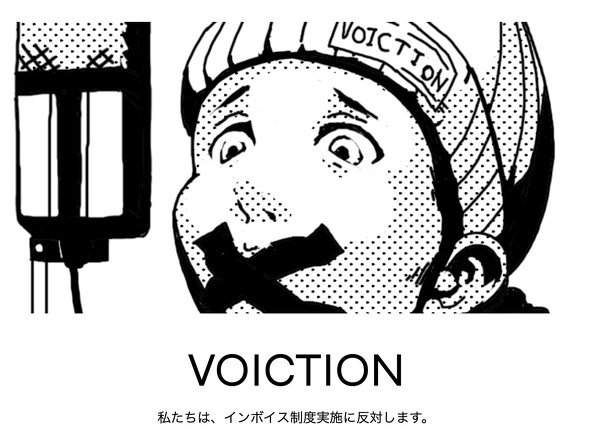It’s true no matter where you live: taxes are necessary and no one likes doing them. But a new law in Japan set to start in 2023 is raising alarms among creators who use pen names, who are alarmed that their real names will be released online. An organization led by SPYxFAMILY voice talent Kaida Yuko says the law could also lead to a mass exodus of voice actors from Japan’s anime scene.
Japan’s invoice system
At issue is the “invoice system” (インボイス制度), which is set to take effect in Japan in October 2023. (The corresponding Japanese word would be 適格請求書 – tekikaku seikyuusho, “qualified job invoice”. But it’s more commonly referred to by the loan word “invoice”.) The system is intended as a new way to track the work done by freelancers for tax purposes.
The invoice system impacts anyone making under 10 million yen (around USD $69,000) per year who works either as a freelancer or a sole proprietor. That covers a lot of jobs where people are technically working on a freelance basis, such as consultants, massage therapists, independent taxi drivers, Uber Eats drivers, and others.
The system will also cover pretty much every creative profession that exists in Japan for people whose income falls under the 10 million yen watermark. That includes YouTubers, online writers, illustrators, directors, actors, and voice actors (among many, many others).
As part of this system, the real names, registration numbers, and date of registration will be printed on the Japan Tax Agency’s Web site, where they will be publicly accessible. The Agency insists that, by law, all sole proprietors and contractors are required to make this public declaration[1].
The threat of exposure

And that’s where one of the key problems comes in.
A large number of creators in Japan work under online pseudonyms. But under the invoice system, their real names and a set of other potentially identifying information will be publicly available for everyone to discover.
At best, this means that some creators who’d rather remain anonymous could have their identities revealed. At worst, it could put people’s lives in danger. Some creators could find themselves subject to stalking by rabid fans. And creators who deal in sensitive content – political activists, adult content creators, etc. – could suffer from harassment campaigns targeting them and their families.
Defenders of the system say that the information exposed is minimal and the threat of someone identifying a creator is low. However, stalkers and harassers have been known to work off of even less information. A few years ago, a stalker in Japan was able to find where a woman lived by an image reflected in her eye in a photo[2].
The low salaries of anime voice actors

Voice actors are also…um…voicing their concerns.
One of the activists railing against it is voice actor Kaida Yuko (甲斐田裕子). Kaida has been a voice actress since 2001. Most recently, she voiced Sylvia Sherwood in the hit anime SPYxFAMILY[4].
Kaida is doing more than just speaking out. She and two other voice actors lead a group called VOICTION that’s pushing for changes to the system before it debuts next year[3].
The identity issue isn’t as pressing, as most voice actors in Japan use their real names. But VOICTION has numerous other issues with the system. The average voice actor in Japan only makes around 2 million yen (USD $13,850) a year off their work. (The best can make up to six figures. But that’s dependent on starring in a hit vehicle and building a fan base.) [5] Many also have to take voice training and work part-time jobs. VOICTION believes the new system places a large time burden on people who have precious little time to spare.
As part of these efforts, VOICTION is conducting several polls. One of the polls is on average salary in the industry. VOICTION’S results buttress the numbers I shared above. According to the responses of about 260 voice actors, 70% of all respondents are making less than 3 million yen a year. Only 5% make over 10 million yen a year. In other words, only 5% of all voice actors are exempt from the invoice system.
By the way, the income numbers for voice actors are even worse than they look. According to VOICTION’s numbers, actors with lower income spend anywhere from 50% to 100% of what they make on expenses, such as voice lessons. (Those numbers decrease steadily as an actor becomes more established.) For many, it leaves them with little money left to live on[7].
20% of voice actors say they’ll quit
VOICTION also conducted another poll. They asked: What would voice actors do if the invoice system was ultimately implemented into law?
The result was startling. Of the 183 respondents, a full 20% said they would consider quitting voice acting. Another 53% said they would reduce their work activity. A full 97% said they opposed the implementation of the invoice system.
Keep in mind that these surveys represent a small sample (less than 500) of the 10,000 or so voice actors that VOICTION estimates work in the industry. It’s also an online survey conducted in a format that appears to make it hard (if not impossible) to verify the integrity of the data.
That said, if these numbers are even close to accurate, it means the invoice system could inflict a staggering loss on the anime voice industry. It’s already hard to make anywhere near a living wage as a voice actor in Japan. This represents another downside in an industry already overflowing with them.
In an interview with ITMedia[6], Kaida Yuko says she’s seen many voice actors drop out of the industry in the past several years as economic conditions have worsened. She says she herself has witnessed cases of new actors being paid low fees, being used up, and tossed aside. Kaida says the invoice system is “more salt in the wound” and fears it could usher in the death of her industry:
“If a piece of culture or art breaks down, there’s no getting it back. Does Japan really intend to extinguish the flame of Japanese culture?”
Time will tell whether the invoice system law goes through as originally written. In 2019, backlash against a copyright law from manga authors resulted in a significant rewrite. With any luck, perhaps activists can make lightning strike twice.
What to read next
Sources
[1] インボイス制度導入で「あの漫画家の本名がバレる」は本当か?Shueisha Online
[2] 「瞳に映った景色」からアイドルの自宅を特定した男「驚愕の手口」. Weekly Gendai
[3] VOICTION
[4] Sylvia Sherwood. SPYxFAMILY Fandom Wiki
[5] 声優の年収を詳しく解説!Heikin Nenshu
[6] インボイス制度で声優の2割が廃業も? インボイス反対のVOICTION甲斐田裕子氏に聞く. ITMedia
[7] 22/09/29 プレスリリース公開. VOICTION






